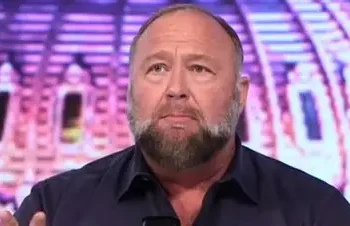Steve Bannon’s recent Thursday night WarRoom remarks unveil a bold strategy to restore liberty and dismantle the bureaucratic structures threatening American democracy. His focus on the “unitary executive” theory, constitutional checks and balances, and the need for decisive leadership underpins his vision for a reformed government. Bannon’s comments are a call to action for the WarRoom audience, urging a deeper understanding of the stakes and the roadmap ahead.
Resources for this report:
Cornell Law: Unitary Executive Theory (UET)
The Unitary Executive Theory (UET) is the idea that the President has complete control over the Executive Branch, a concept traced back to the Virginia Plan of 1787. The most debated part is the President’s power to fire executive officials without needing a specific reason, which the Supreme Court backed in Collins v. Yellen (2021). Essentially, it emphasizes the President’s authority over appointees, sparking ongoing debates about its impact on government balance and power.
The Unitary Executive: Central to Restoring Power
Bannon highlights the importance of the “unitary executive” theory, which he says is crucial to reining in the unchecked power of bureaucratic agencies.
What is the unitary executive?
It posits that the president, as the nation’s chief executive, commander-in-chief, and chief magistrate, must have direct control over the government. No internal "checks” should hinder this constitutional authority.
Why is it critical?
Bannon, after watching a cold opening of a professor on MSNBC talking about President Trump removing checks and balances with this theory, warns of an entrenched “deep state” that undermines elected leadership.
“The permanent government thinks they have a check on the politicals,” he explains. “No sir. That’s not how the Constitution works.”
Checks and Balances: Misunderstood and Weaponized
Bannon addresses misconceptions about checks and balances, arguing they exist to balance the three branches of government—not to restrict the executive branch internally.
“There’s no check and balance inside the executive,” he stresses.
He points to the Justice Department and FBI as examples of how unelected officials misuse power, creating a system that stifles liberty and undermines democracy.
Deconstructing the Administrative State
Bannon revisits a key Trump-era mission: dismantling the “administrative state.”
What went wrong in Trump’s first term?
Efforts focused on deregulation rather than structural reform. Bannon admits, “We didn’t have the intellectual firepower to push it through.”
What’s the plan now?
A systematic “brick by brick” teardown of bureaucracies, informed by years of strategic planning with key allies. This vision aligns with constitutional principles, fostering an environment for entrepreneurial freedom and individual liberty.
The WarRoom’s Role: Educate and Mobilize
Bannon emphasizes that the WarRoom audience must grasp these concepts to fight effectively.
Understanding Liberty:
“This fight goes back to the revolution,” he declares, linking the current battle to America’s founding struggle against oppressive governance.
Learning from Setbacks:
He candidly addresses recent losses, calling for better coordination. “You can’t stick people out there with no air cover,” he warns.
Action Plan:
Focus on educating others about the unitary executive, mobilizing grassroots support, and holding leaders accountable.
A Call to Arms: “Massive Fight Ahead”
Bannon sees this struggle as pivotal for America’s future.
“This is about reconstituting government into a limited framework necessary for liberty,” he asserts.
Despite setbacks, he remains optimistic, noting that imperfect leaders like Trump and others bring unique strengths to the battle.
Join the Fight
Steve Bannon’s mission is clear: to restore liberty by dismantling entrenched bureaucracies and empowering elected leadership. His call to the WarRoom audience is urgent and uncompromising.
“Liberty demands vigilance and courage,” he reminds us. The path forward requires education, action, and unyielding commitment to the founding principles of the Republic.
For more teaching from Bannon on this important Constutition theory:





